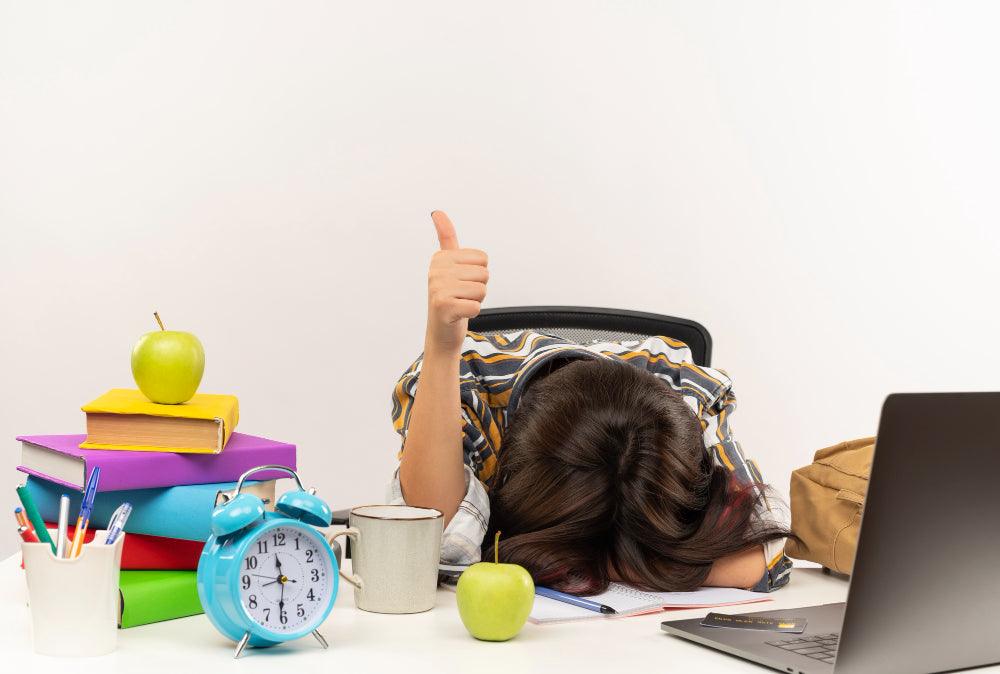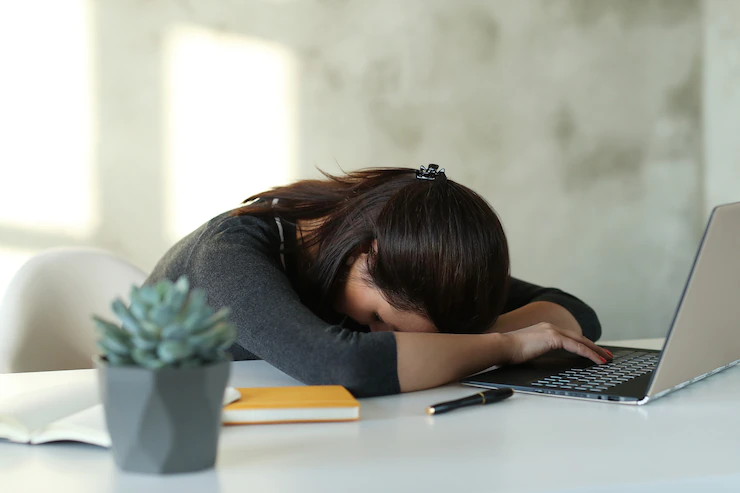How To Stop Feeling Tired



Frequent feeling of tiredness has become a common norm for most people. Tiredness may be described as a feeling of fatigue, weakness, exhaustion, and low energy levels to do your daily chores. Surveys show that 10-18% of people in the UK complain of tiredness that lasts for more than three weeks.
There has been an uptrend in general fatigue among people of all age groups, and young parents with small children top the list among people suffering from fatigue. The recent covid pandemic has further escalated the problem of tiredness and fatigue, which has been otherwise attributed to lifestyle factors. Tiredness may be felt differently by different persons, some may feel mental or emotional exhaustion while some may experience tiredness physically.
Lifestyle factor is a major cause of tiredness in today's technologically driven life. However, you may also experience tiredness because of an underlying health condition.
Tiredness may be attributed to a wide range of causes, which may be categorized as follows:


This category includes certain underlying health conditions and disorders that affect your overall health. Some of the health conditions associated with tiredness include:
Pregnancy, although a natural health phenomenon, tends to take a toll on the woman's body. You may often feel tired during the first trimester of pregnancy.
Quite a few women suffer from chronic inflammation of the joints and muscles, which may cause fatigue in the long run. For some middle-aged women, the menopausal transition which is characterized by low levels of oestrogen may affect the health of your bones, muscles, and joints. The increased inflammation often affects mobility and results in exhaustion and tiredness.
The current population is at an increased risk of tiredness caused by poor mental health. A demanding career that keeps your mind exhausted often affects your mental health. Some of the mental health issues that result in tiredness include the following:
Diagnosing and finding out the root cause of tiredness is the key to fighting fatigue. Your doctor will take your thorough clinical history as well as perform a few lab tests to diagnose your problem of tiredness.
If you are a new mom, dealing with post-partum fatigue, you can consider taking a Welzo blood test for the tired new mum, which will assess your health, specifically, your iron and vitamin D, and B12 levels. In addition, your doctor will also question your lifestyle, diet, and sleep patterns to better evaluate your health.
Based on your symptoms your doctor will prescribe the appropriate medication for you. If you have an underlying health condition such as inflamed joints and muscles, you may be prescribed NSAIDs for relieving the pain and inflammation. In some cases, you may require steroids to control the inflammation.
In the case of Diabetes, your doctor may prescribe oral anti-diabetic drugs or insulin injections depending on the type and severity of diabetes.
If you are suffering from some kind of vitamin deficiency, you may consider taking vitamin supplements. Vitamin deficiency has been a common cause of tiredness among many individuals. Spending longer hours indoors working on your laptop can deprive you of your daily dose of much-needed vitamin D. You may consider taking our Welzo vitamin D supplement to help maintain your vitamin D levels.
Lifestyle ChangesYour doctor may certainly ask you to make some lifestyle changes to treat the symptom of tiredness.
Avoid smoking and drinking alcoholBoth smoking and excessive consumption of alcohol can considerably lower your energy levels. The carbon monoxide present in cigarettes can reduce the oxygen levels in your blood, resulting in fatigue. It is best to avoid or at least limit smoking and drinking alcohol.
Cut down on the excess CaffeineWorking for long hours may get you used to energy drinks and coffee. But the stimulant provide by caffeine lasts for a few minutes and will only make you feel more fatigued in the long run. Tea, coffee, colas, and carbonated energy drinks should be gradually reduced if you wish to fight tiredness.
Sound SleepAn adequate amount of deep sleep is necessary to maintain good health and energy for the day ahead. Although the excessive workload may rob you of your necessary sleep, you must take steps to get sufficient sleep if you want to reduce exhaustion.
You may consider sleeping at the same time each day to manage your insomnia. Dim the lights, stay away from electronic gadgets and take a while to relax before you get to bed each night. You may consider avoiding those afternoon naps as well.
Mind your Meals
It is best to avoid those small snacks, instead of a proper meal. Skipping meals is a strict no. Having smaller meals at least six times a day is considered to keep you running with the optimum energy levels. Adequate fruits and vegetables should be added to your daily diet to reduce exhaustion and tiredness. Drinking plenty of water can also help relieve your tiredness if you are dehydrated. Chia seeds, nuts, whole grains, oats, and bananas are examples of food that help to fight low energy and fatigue.
Iron deficiency anaemia is more common than you may think. Pregnant women more commonly suffer from iron deficiency and almost 14% of non-pregnant women have iron deficiency in the UK. Therefore, all women must careful to eat iron-rich foods in adequate proportions. You may consider taking supplements in case of prolonged and severe iron deficiency.
Weight ManagementYou may want to lose excess body fat if you are overweight. You may consult your doctor for weight loss treatment. Eating the right food and regular exercise can help a great in reducing weight and the tiredness associated with excess weight. If underweight, you may consult your doctor for recommendations regarding your ideal weight. Your doctor may prescribe vitamin supplements in case of deficiency.
Work-Life BalanceAlthough hugely ignored, maintaining a healthy work-life balance is of utmost importance to fight exhaustion and fatigue. You may consider talking to your human resource officer, take reasonable targets and avoid overburdening yourself at work.
Your Mental Health MattersStaying mentally and emotionally healthy is vital for your energy levels. Chronic stress and unhealthy lifestyles or circumstances can affect your mental health. Talking to your therapist or a friend regarding your mental health can help relieve you.
Regular Exercise is good for you
Sitting for long hours with reduced physical activity can get your blood pressure low. You may also get dehydrated if you have forgotten to take a few sips of water in between. It is best to keep your body physically active. Take time to do a few stretches in between work and indulge in regular physical exercise.
Taking time to rejuvenate your body with small breaks from your busy schedule for meditation and relaxation can be a great idea. Fighting fatigue and chronic tiredness requires a change in your lifestyle. You may have to move from burdening yourself too much to taking extra time for your mental, emotional and physical well-being. It is always a great idea to consult your doctor or therapist who could help you better in dealing with tiredness.










Plus get the inside scoop on our latest content and updates in our monthly newsletter.